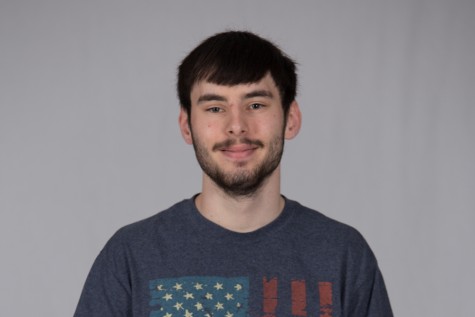Dual credit takes on a new meaning, opening doors for future Akins students
New program allows freshmen to gain 36 college credits
Students are now able to earn more college credit than ever before.
April 22, 2016
Akins students will have the opportunity to earn up to 36 hours of college credit while still in high school starting next year as part of the new Dual Credit Eagles program.
The program is part of a statewide expansion of dual credit opportunities for high school students. It is designed to increase the participation of high school students in dual credit and other college-level courses. By increasing the number of hours of dual credit students can earn, Akins administrators hope to improve the likelihood that students will go onto higher education after graduating from high school.
“The big picture is that we’re always trying to increase the capacity here at Akins to support students to go on to college and be career ready when they leave high school,” College and Career adviser Sarah Simmons said.
According to a study by the National Alliance of Concurrent Enrollment Partnerships, dual credit students were more likely to earn a degree quicker than the average student, and researchers found that dual credit courses were just as effective in preparing them for the coming college coursework.
College level-work is becoming more common at Akins as more kids begin taking advantage of dual credit opportunities. AP, co-enrollment, and articulated credit are just a few ways students can begin getting college credit while in high school. However, dual credit is the only way to get credit for both high school and college just by passing the course.
“DC Eagles is here to support students who want to access that program (dual credit classes) during the school day, and are willing to commit to the program enough,” Simmons said.
While earning up to 36 hours of college credit sounds good initially, students interested in the program are having to weigh whether they are ready to commit to its requirements, especially how much time these classes will demand to be successful.
“We want kids to be involved in school, which also furthers their chance of being successful; but for our kids who can’t be in those programs for the same reasons: they can’t afford it, they can’t stay after school, what about all those kids who just need support during the school day and are willing to commit to this program?” Simmons said.
Another factor that students have to consider is the cost of paying for textbooks, which can cost up to $100 just for one. However, Simmons said Akins administrators are working to find ways to help students with financial needs pay for their books so it doesn’t prevent them from joining the program.
“We’re never gonna let (textbooks) be a reason to keep a student out of the program, but that is something we’re having to look at,” she said. “(Principal Brandi) Hosack has promised us that, again, it will not keep someone out of the program.”
Another financial consideration that students will have to consider is that the Austin Community College board of trustees recently passed a rule that will require dual credit students to pay $100 for each class, said ACC dual credit specialist Davelyn Forrest.
“I anticipate that we are going to have students that want to leave the program, and that’s why we’ll have a waiting list. I really hope that the process of getting into the program allows for committed students,” she said.
Some students said they feel intimidated by the idea of committing three years to college while still in high school, and also by the possibility of not being able to participate in extracurricular programs that involve large time commitments.
“I feel like it would be stressful, but at the same time it would help you get ahead. It’s worth the challenge,” freshman Gabriella Cantu said.
Cantu said the only thing that is stopping her from signing up for the program is her involvement in sports.
Simmons understands why students are hesitant to sign up, however they should keep their long term goals in mind when it comes to higher education.
“I want more students taking dual credit, and I want them to choose what’s appropriate for them. It’s a big commitment and I really am happy just for more students to know about dual credit and access that program,” Simmons said.
New Tech Academy counselor Christine Kesling said students who sign up for DC Eagles should stay organized.
“My advice would to keep a planner going … the planner should be busy. I wish I had done something like that,” Kesling said.
Simmons said she is excited to watch the program grow.
“What’s really cool about this program is that by the time they graduate as a senior they’ll have 36 transferable core curriculum hours, and because they’re apart of the dual credit core curriculum they won’t be seen as a transfer student, which means they still can access all freshmen scholarships and all freshmen programs, they just don’t have to pay for all that college,” Simmons said.







